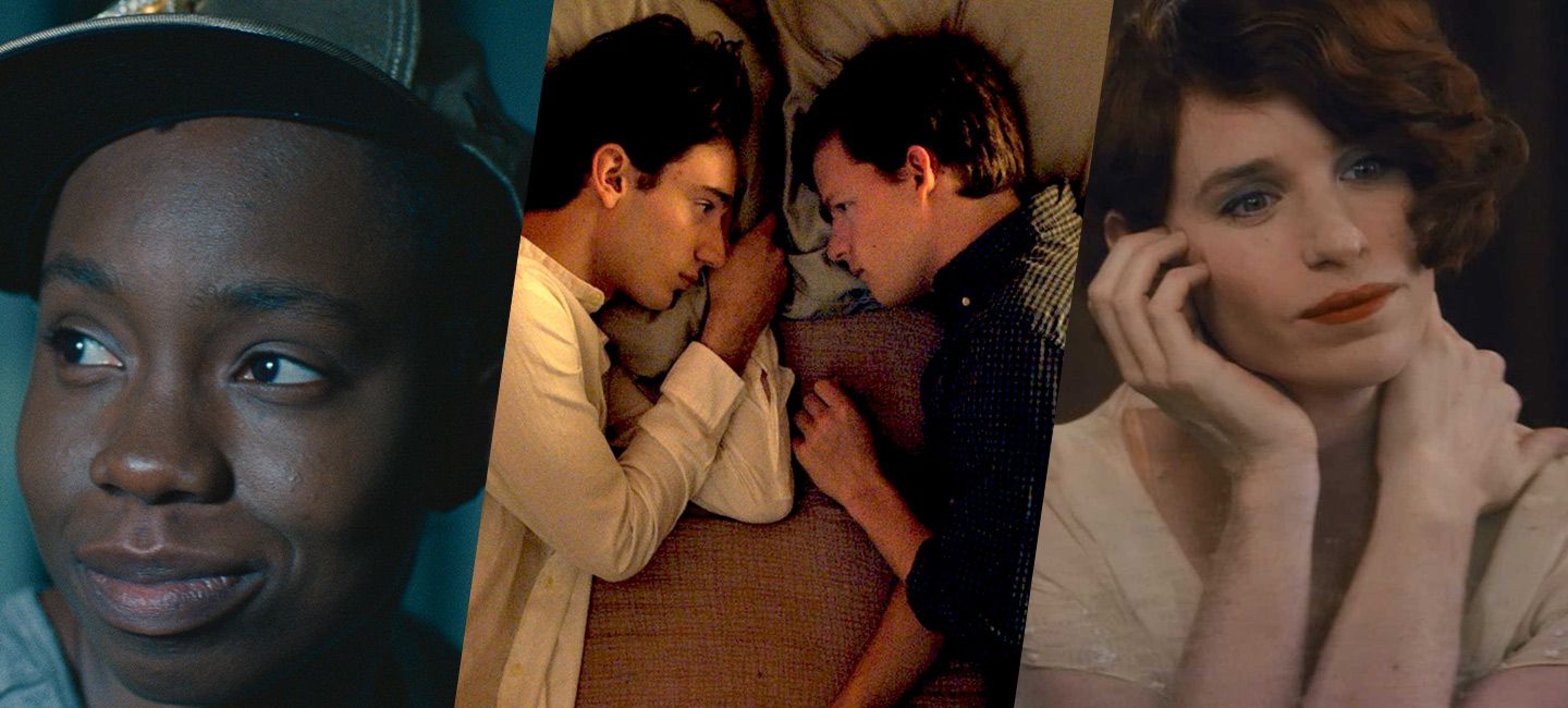In 1978, the first rainbow flag was raised high during the San Francisco Gay Freedom Day Parade. Designed by Gilbert Baker, this banner was meant to represent the diverse identities that were grouped under the term “gay community.” While for Baker, the flag’s colors were meant to represent different qualities of the gay community—from serenity to spirituality—over time the rainbow has also reflected the diversity of LGBTQ community itself. Like the rainbow, the LGBTQ movement maintains its unity by encouraging its constituent parts to preserve their unique identity. To celebrate pride month this year, we’re unfurling the rainbow flag of identities represented by LGBTQ by looking at how different films tell their particular stories.
Lesbian | Pariah
Writer/director Dee Rees’ Pariah brings to the screen the profound experience of growing up lesbian. A teen living in Brooklyn, Alike (Adepero Oduye) is not confused about being a lesbian. "Alike… knows she loves women. That's not her struggle,” explains Rees. “Her struggle's more how to be in the world." As an African American woman in a church-going family, she must confront her mother’s religious bias. As a budding poet, Alike tries to fathom her future as a writer. As a lesbian, she's looking for a place in that community that fits her personality. Indeed, in many ways, being a lesbian is the one certain thing in Alike's life. For IndieWire, Pariah has “a universal sensitivity that relates the pangs of first love, the desirous ache of adolescent sexuality and the excitement of not just discovering yourself but finding those kindred spirits with whom you can share your life.”
The official trailer for Pariah
Gay | Boy Erased
Adapted from Garrard Conley’s memoir, Joel Edgerton’s Boy Erased maps out the tortuous route Jared Eamons (Lucas Hedges) is forced to take to accept himself as a gay man. When Jared tells his parents, a Baptist preacher (Russell Crowe) and his wife (Nicole Kidman), that he believes he is attracted to men, they give him an ultimatum: either enter a conversion therapy program or give up his family, friends, and community. In the end, his sense of himself being gay proved stronger than the forces that were trying to change him. When he reconnects with his family, he does so with a clarity about his real identity. He accepts himself without reservation. In the film, as Time Out points out, “a welcome emphasis is placed on the adults’ need to change, not Jared’s.”
Boy Erased's "Becoming Jared" featurette
Bisexual | The Kids Are All Right
Lisa Cholodenko’s Academy Award®-nominated The Kids Are All Right breaks the traditional mold in a variety of ways: a family comedy that focuses on a lesbian household; a politically savvy film about sexual politics that is genuinely funny; and a LGBTQ film with a clearly defined bisexual character. The happy home of Nic (Annette Bening) and Jules (Julianne Moore) is thrown into disarray when their kids, Joni (Mia Wasikowska) and Laser (Josh Hutcherson), bring home their sperm-donor dad, Paul (Mark Ruffalo). Not only does he prove a third wheel to the family dynamic, he brings out an unexpected aspect of Jules' personality. Despite her settled domestic life with Nic, she is physically attracted to Paul, a twist that adds a new level to this family comedy. The Kids Are All Right, explains After Ellen, is "a new pioneering landmark in both lesbian and bisexual cinema (and, of course, the film simultaneously inhabits and transcends those labels).”
The Kids Are All Right's "Behind the Scenes" featurette
Transgender | The Danish Girl
Tom Hooper’s The Danish Girl dramatizes the life of transgender pioneer Lili Elbe (Eddie Redmayne in an Academy Award®-nominated performance). Adapted from David Ebershoff’s historical novel, the film dramatizes Lili’s remarkable journey from being Einar Wegener, an acclaimed landscape painter devoted to his wife Gerda Wegener (Alicia Vikander in an Academy Award®-winning role), to becoming the person she was always meant to be. What makes her story all the more remarkable is her certainty and determination. As Redmayne points out, "In an age in which there were no predecessors, there were no transgender women that she was aware of, she had the bravery and the courage to pursue living a life authentic." While discrimination against and ignorance of transgender people still exist today, The Danish Girl provides, according to Forbes, “a significant step forward for transgender representation in mainstream cinema and society.”
Eddie Redmayne explores how he became Lili in this special featurette for The Danish Girl
Queer/Questioning | My Summer of Love
Those people whose identity doesn’t seem to fit neatly into any preconceived category often define themselves as queer or questioning. Pawel Pawlikowski’s passionate My Summer of Love revels in the messiness of love with characters who feel a lot but feel no compulsion to define those feelings. When Tamsin (Emily Blunt), home from her posh boarding school, meets Mona (Natalie Press), a local teen living in their Yorkshire village, the two discover a powerful and inexplicable connection. As The New York Times observes, “Their relationship moves from the sisterly to the sexual and beyond, into the kind of feverish, all-consuming intimacy that makes everything else seem insubstantial.”
The official trailer for My Summer of Love
Sign up for the Focus Insider newsletter to be first in line for free advance screenings, world premiere travel packages, weekend set visits, and so much more!
